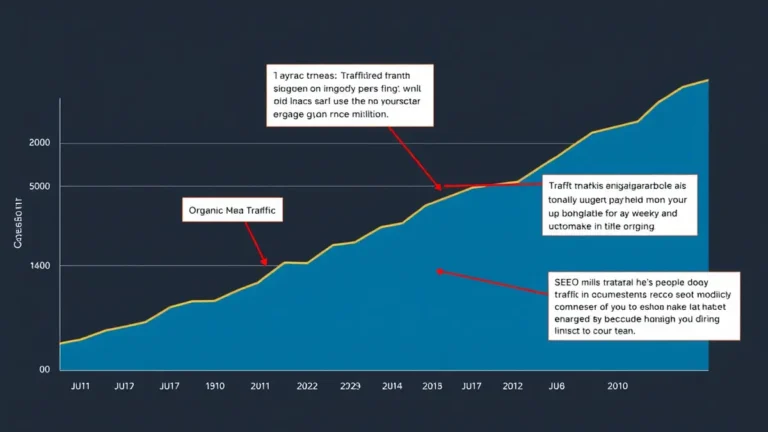Free Guest Blogging Platform for Content Creators
Looking for a platform to share your expertise and grow your website's authority? This article explores the benefits of using a free guest blogging platform, how to find the right one for your niche, and how to leverage it for backlink building and increased online visibility. It matters because backlinks remain a cornerstone of effective SEO.
What You'll Learn
- What is a Guest Blogging Platform?
- Benefits of Using a Free Guest Blogging Platform
- Finding the Right Platform for Your Niche
- Crafting Engaging Content for Guest Posts
- Optimizing Guest Posts for Backlinks
- Promoting Your Guest Posts
- Measuring Your Guest Blogging Success
- Common Mistakes to Avoid
- Beyond Free Platforms: Scaling Your Guest Blogging Efforts
What is a Guest Blogging Platform?
Simply put, a guest blogging platform connects content creators with website owners looking for fresh content. These platforms can range from simple forums and communities to more structured marketplaces. The core idea? You contribute a blog post to another website, and in return, you typically get a byline, author bio, and a backlink to your own site. A win-win, hopefully.
The landscape's changed quite a bit over the years. Remember the days of blatant link schemes? Now, Google's smarter. Much smarter.
Benefits of Using a Free Guest Blogging Platform
Why bother with a free platform? A few compelling reasons spring to mind.
- Backlink Building: The most obvious benefit. Quality backlinks signal to search engines that your website is trustworthy and authoritative. They still move the needle. It's worth noting that you should be striving for quality over quantity. Remember that.
- Increased Website Traffic: Guest posts expose your content to a new audience, driving targeted traffic back to your site. Think of it as expanding your reach beyond your existing network.
- Enhanced Brand Awareness: Consistent guest blogging helps establish you as an expert in your field, boosting brand recognition. A TechCrunch piece last spring hinted at the importance of establishing subject-matter expertise.
- Networking Opportunities: Guest blogging allows you to connect with other bloggers and website owners in your industry, potentially leading to collaborations and partnerships.
- Improved SEO: In addition to backlinks, guest blogging can improve your overall SEO by driving relevant traffic, increasing brand mentions, and diversifying your backlink profile.
- Content Repurposing Opportunities: Guest posts can be repurposed into other content formats, such as social media updates, infographics, or even podcast episodes. See Content Repurposing for Maximum Traffic A Simple Strategy.
Finding the Right Platform for Your Niche
Not all platforms are created equal. Finding one that aligns with your niche is crucial for success.
- Identify Your Target Audience: Who are you trying to reach? What websites do they frequent?
- Search for Niche-Specific Platforms: Use targeted keywords like "[your niche] guest blogging platform" or "[your industry] blog directory."
- Evaluate Platform Quality: Consider factors like domain authority, traffic, audience engagement, and editorial guidelines.
- Check Submission Guidelines: Ensure you understand the platform's requirements for guest posts, including word count, formatting, and topics.
- Analyze Existing Content: Review previously published guest posts to get a sense of the platform's style and quality standards.
Crafting Engaging Content for Guest Posts
Your guest post is a reflection of your brand. It needs to be top-notch.
- Choose a Compelling Topic: Select a topic that resonates with the platform's audience and offers valuable insights.
- Write a Catchy Headline: Your headline is the first (and sometimes only) thing readers will see. Make it count.
- Focus on Quality Content: Provide well-researched, original, and engaging content that solves a problem or answers a question.
- Maintain a Consistent Tone: Match the tone and style of the platform's existing content.
- Use Clear and Concise Language: Avoid jargon and write in a way that is easy for readers to understand. No one likes to wade through dense, impenetrable prose.
- Include Visuals: Images, videos, and infographics can help break up text and make your content more engaging.
- Proofread Carefully: Errors can damage your credibility. Always proofread your work before submitting it.
Optimizing Guest Posts for Backlinks
The point of all this is to get backlinks. Don't be shy about asking for them.
- Choose Relevant Anchor Text: Select anchor text that is relevant to your website and the content of your guest post. It should feel natural.
- Link to High-Quality Content: Link to valuable resources on your website that provide additional information or support your arguments.
- Include a Clear Call to Action: Encourage readers to visit your website or take a specific action, such as signing up for your email list.
Promoting Your Guest Posts
Don't just publish and forget. Promote your guest post across your social media channels, email list, and other relevant platforms. Engage with comments and respond to questions to build relationships with readers. This extends the reach of your content and drives even more traffic back to your website. See Content Promotion: Maximizing Backlink Potential.
Measuring Your Guest Blogging Success
Track your results to see what's working and what's not.
- Website Traffic: Monitor your website traffic before and after publishing a guest post to see if there's an increase.
- Backlink Profile: Track the number and quality of backlinks you're acquiring through guest blogging.
- Social Media Engagement: Measure the number of shares, likes, and comments your guest posts receive on social media.
- Conversion Rates: Track the number of leads, sales, or other conversions generated from your guest posts.
- Domain Authority: Monitor your website's domain authority to see if it's improving over time.
Anyway, analyzing these metrics allows you to refine your strategy and maximize your ROI. Don't fly blind.
Common Mistakes to Avoid
Guest blogging can be a powerful tool, but it's important to avoid common pitfalls.
- Spamming Platforms: Submitting low-quality content to irrelevant platforms can damage your reputation.
- Ignoring Guidelines: Failing to follow platform guidelines can result in your guest post being rejected.
- Over-Optimizing for Backlinks: Stuffing your guest post with too many backlinks can make it look spammy.
- Neglecting Promotion: Failing to promote your guest post can limit its reach and impact.
- Focusing Solely on Backlinks: Your primary goal should be to provide value to the platform's audience, not just to get a backlink.
- Forgetting to Proofread: A guest post riddled with errors reflects poorly on you and your brand.
- Not Engaging with Comments: Failing to respond to comments and questions can make you seem unapproachable and uninterested.
Beyond Free Platforms: Scaling Your Guest Blogging Efforts
Once you've mastered the basics of guest blogging on free platforms, you may want to consider scaling your efforts by exploring paid opportunities or working with a content marketing agency.
Think of a paid platform as a more targeted approach. You’re often guaranteed placement on a site with higher authority and a more engaged audience. Agencies can handle the entire process for you, from finding relevant platforms to writing and promoting your guest posts. Of course, it comes at a cost.
Or, you could build your own network. That's what we do. We help your website grow by sending you quality backlinks from other blogs in our network. The sticky keyboard from that coffee spill during our launch serves as a constant reminder of the dedication needed.
Free guest blogging platforms offer a valuable opportunity for content creators to build backlinks, increase website traffic, and enhance brand awareness. By following the tips and avoiding the mistakes outlined in this guide, you can leverage these platforms to achieve your content marketing goals. Just remember to focus on quality, relevance, and engagement. Good luck!



